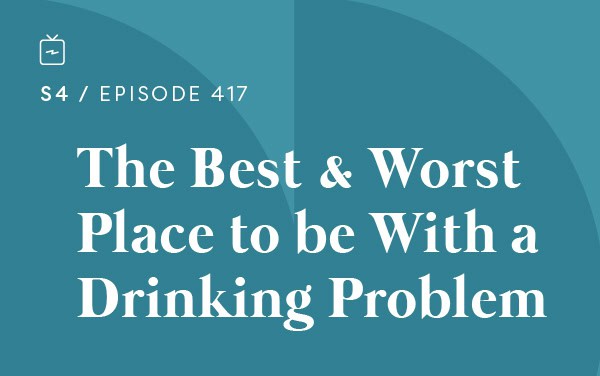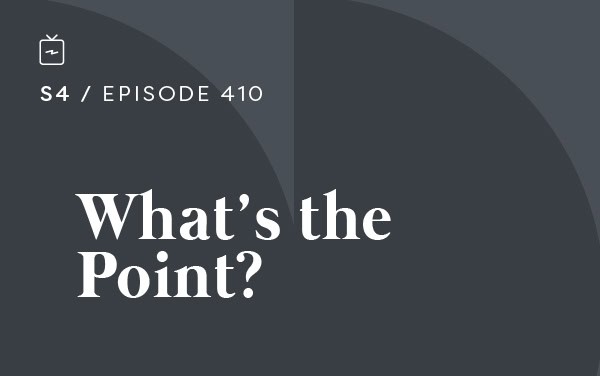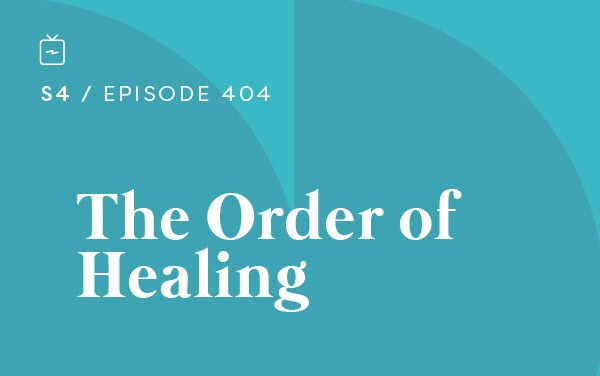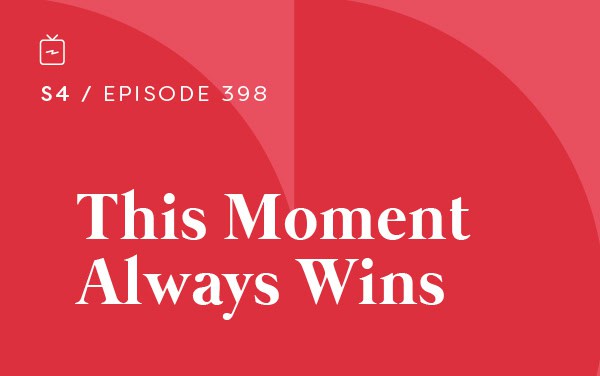
by Kris Oyen | Feb 13, 2023 | Podcast
Podcast: Play in new window | Download
Subscribe to the Recovery Elevator Podcast Apple Podcasts | | More
Episode 417 – The Best and Worst Place to be With a Drinking Problem
Today we have Jenny, she is 36 from Hudson, WI and took her last drink on 2/16/2020.
Shout out to our Café RE hosts! They do an amazing job.
If you are interested in joining, click the link and use the promo code OPPORTUNITY to wave the setup fee.
[02:45] Intro Summary:
When Paul describes the best and worst places to be with a drinking problem, they both look a lot alike.
That realization that alcohol no longer serves us, but we can’t imagine life without it can be a scary place to be. Alcohol has us right where it wants us. It may feel like part of you is dying, that feeling is grief.
But on the flip side, when we realize that alcohol no longer serves us, we can see that as an invitation to live the life we were meant to live. We are at the tipping point about to embark upon the greatest journey in our life.
We are all right where we need to be. Life will keep giving us the same lesson until we are ready to learn or make a change. By making that first jump into the unknown, you give others courage to do the same.
Better Help: www.betterhelp.com/elevator – 10% off your first month. #sponsored
[10:15] Paul introduces Jenny:
Jenny is 36 and lives in the small town of Hudson WI. She is married and they have one son together. She works in education and enjoys the outdoors – camping, backpacking, she also enjoys gardening, yoga and in recovery she learned that she likes to read.
Jenny’s drinking started when she was just 11 years old. A traumatic event that she didn’t share with anyone had her feeling alone and out of place. Jenny realized she loved drinking right from the start. She grew up aspiring to be the bad girl with the tough persona because it helped her put up a guard to protect herself. She enjoyed drinking and was willing to try any other drugs.
When she was 20 her and her boyfriend moved to Montana. She thought she could escape her issues, but that didn’t work. Her addictions got worse and while she would quit some things, the alcohol remained which helped her believe that she didn’t have a problem because drinking was socially acceptable.
At age 30, she lost a pregnancy and her drinking evolved from drinking for fun to being self-destructive. She later got pregnant again and her son was born 18 months later. She still struggled to quit drinking during pregnancy and since her doctor told her it was ok, she saw that as a green light to keep drinking.
When their son was 7 weeks old, they moved back home from Montana to their hometown to be close to family. In debt, postpartum with no job, the lived in her in-law’s basement and her drinking got really bad. No one called her out because drinking was all part of the culture.
Her turning point was after Super Bowl Sunday when she had crippling anxiety the day after and ended up staying in bed for two days with very dark thoughts. There is a history of suicide in her family and that is what stopped her from that path.
She says she was sober from alcohol for the first 14 months but doesn’t feel like she was in recovery. She ended up going to AA in April of 2021 and hasn’t looked back.
To her, there is a big difference between being sober and being in recovery. She is doing things that she likes to do instead of just not drinking. She feels like every day is a victory and she counts every day as it helps motivate her. At first, she had a hard time letting go of the old persona, but now she has let go of that and has redefined who she is. She loves mornings now and is doing well in her job. She also loves yoga and attends AA meetings frequently as well as other online community events.
Connect with Cafe RE – Use the promo code OPPORTUNITY to waive the set-up fee.
Recovery Elevator YouTube – Subscribe here!
Sobriety Tracker iTunes
Recovery Elevator
I love you guys
We can do this.

by Kris Oyen | Dec 26, 2022 | Podcast
Podcast: Play in new window | Download
Subscribe to the Recovery Elevator Podcast Apple Podcasts | | More
Episode 410 – What’s the Point?
Today we have Justin who is 37 from New York
Check out the AF drink recipes curated by Kate on the Recovery Elevator blog
NYE Sober Prom in San Diego on December 31st. We have Athletic Brewing, Sip Clean, Sound Soda and Crumbl Cookies sponsoring this event, open to Café RE members only.
Whether you are on day 1 or day 1000, there is still time to join REStore. We start this Sunday, please join us!
Highlights from Paul:
Many of us have asked the question “what’s the point of life?” The response is always a near derivative of love. It’s safe to say that the core religions can be summarized with one teaching. The Golden Rule. The mystics recognized, we are all one, what you do to another you do to yourself and if you treat your fellow human being with respect and dignity, you in turn will experience the same.
We have learned that we cannot find the point of it all at the bottom of a bottle. And when we hear The Golden Rule, we often think of the other person, but what about being kind to ourselves? Treat others as you’d like to be treated, but you need to treat yourself how you want to be treated. And only then, can we have a shot at learning about what this miracle we call life is all about.
Better Help: www.betterhelp.com/elevator – 10% off your first month. #sponsored
[10:00] Kris introduces Justin:
Justin has been sober since September 9th, 2020. He lives in Harrison New York. He is getting married next year, has two cats and two dogs. He loves running, traveling, and listening to podcasts and audiobooks.
When he was growing up, his first exposure to alcohol was his family having wine at the holidays and his dad drank beer. He remembers his father as inconsistent, and was very aware of the amount of beer that his father drank and was attuned to what was going on.
Justin first drank in around 7th grade but didn’t like where it was heading. Later he had a small circle of friends that he would drink heavily with late in high school. After transitioning to college alcohol was the gateway to making friends. He started making rules around his drinking early on and used it as a coping tool. He never felt he had a problem because he knew what a problem looked like.
After college, Justin continued to try and create rules around his drinking. Alcohol was more of a social connector and bars were everywhere and he couldn’t imagine life without drinking – it was normalized but he knew he was different, and that drinking wasn’t right for him.
It was when Justin had his first experience dating someone that didn’t drink that he realized it was possible to go out and be fully present and aware. He recognized that this was the person he wanted to be but was still dependent on alcohol. When he had 10 days of sobriety for a personal development course, but could not continue, he knew he had to address the problem. He started listening to audiobooks which helped him recognize what led to his addiction. He had a shift where he realized that he no longer wanted to use alcohol to cope with life. While running he started listening to recovery books and podcasts. He was able to start stringing sober days together and realized that he wanted to be a non-drinker. He started looking at his recovery scientifically and evaluated his sober vs. non-sober time.
He says his biggest tools involve audiobooks, podcasts, playing the tape forward and connection is the most important. You can connect with Justin in the links below:
Alternative Direction Coaching
This Naked Mind – Justin
CoachJustin450@gmail.com
[60:00] Thoughts from Kris
Radical honesty has been important for Kris and urges us to ask ourselves a few questions without judgement. Honesty can help us accept where we are and get the help that we need.
Connect with Cafe RE – Use the promo code OPPORTUNITY to waive the set-up fee.
Recovery Elevator YouTube – Subscribe here!
Sobriety Tracker iTunes
You’re the only one who can do this RE
But you don’t have to do it alone
I love you guys.

by Kris Oyen | Nov 14, 2022 | Podcast
Podcast: Play in new window | Download
Subscribe to the Recovery Elevator Podcast Apple Podcasts | | More
Episode 400 – The order of healing
Today we have Natasha. She is 43, from Vancouver, B.C, and took her last drink on August 23, 2021.
Book: Alcohol is Sh!t. https://www.amazon.com/Alcohol-is-Sht-Paul-Churchill-audiobook/
Exact Nature: https://exactnature.com/RE20
Highlights from Paul
Paul outlines the order of healing when we quit drinking. He describes the healing as happening in reverse order of the harm done. You can do the following:
- Ditch the booze
- Fuel the body with healthy food and hydrate
- Cut down on sugar and caffeine
- Move (aim for 20 mins a day 3x a week)
- Recovery – AA, Café RE, Smart Recovery, IOP, etc.
Book: The All-Day Energy Diet. https://amzn.to/3CmLivc
The healing process:
- The body (3-12 months)
- Mental healing (6 months to 1.5 years)
- Spiritual healing
Better Help: www.betterhelp.com/elevator – 10% off your first month. #sponsored
[11:04] Natasha has been sober for over a year. She is in medical sales, has a son, and enjoys friends, bingo, travel, and hiking.
Natasha was afraid of alcohol during her early years. She would dump out beer and pretend to be drunk to avoid social pressure. After her son was born, she had six beers during a concert. As she approached thirty, she drank after work with her co-workers in the restaurant industry. At 35, she knew her drinking was a problem.
Socializing and drinking was a big part of her job. Her relationship wasn’t healthy because they drank together, and Natasha could outdrink her partner.
Sobriety has taught Natasha that none of her fears about quitting drinking were true; liquid courage is a myth. She is funny and entertaining with her clients. Her relationships have more meaning, and she can be present.
She describes the first year as brutal. After a boozy weekend with girls, Natasha knew it was time to quit. She dumped out a wine cooler, and that was it. She was angry at people who could drink normally and isolated herself a bit. Now she recognizes she can enjoy her life without the chaos of alcohol. Boundaries have become necessary, and she enjoys spending time alone. Reading, listening to podcasts, and meditation have helped her maintain her sobriety. Natasha’s relationships have evolved and grown. She lost some friends along the way, but her core group supports her sobriety.
[58:51] Kris’s Summary
Kris has been getting his garage in order. He recognized that he was comfortable with the chaos until he hit a tipping point. Cleaning the garage has so many parallels to recovery. Kris was overwhelmed, but he did the next right thing, took it slow, and now everything is clean, organized, and easy to navigate.
Upcoming events, retreats, and courses:
- You can find more information about our events
Resources
Connect with Cafe RE – Use the promo code OPPORTUNITY to waive the set-up fee.
Recovery Elevator YouTube – Subscribe here!
Sobriety Tracker iTunes
Recovery Elevator-
We are the only ones who can do this, but we don’t have to do it alone.
I love you guys.

by Kris Oyen | Nov 7, 2022 | Podcast
Podcast: Play in new window | Download
Subscribe to the Recovery Elevator Podcast Apple Podcasts | | More
Episode 403 – Hello Universe
Many
Today we have Pat. He is 38, from Georgia, and he took his last drink on February 22, 2022.
Events: https://recoveryelevator.com/events
Exact Nature: https://exactnature.com/re20
Highlights from Paul
The opposite of addiction is connection. Near-death experiences often connect us to a higher power and make us question where we go after we die. In today’s episode, Paul shares his views on spirituality and connecting with a higher power.
Addiction disconnects us from the external world and from within. Paul reminds us we are not alone: we are connected to every living on the planet. Love, connection, inclusivity, and wholeness.
Better Help: www.betterhelp.com/elevator – 10% off your first month. #sponsored
[13:14] Pat got sober on 2/22/22 and planned his sobriety date as a military child who has lived in many places. He is married, loves archery, plays guitar, writes music, and sells hearing aids.
Pat began experimenting with alcohol at 15. He learned in college he could drink a lot. He was frequently the last one standing. Initially, he drank to get a buzz. He avoided eating to enhance his buzz. In college, he got a DUI. Pat drank to feel normal. He never had a true rock bottom moment.
In 2020, Pat stopped drinking for six months, knowing he and his wife wanted to conceive. He switched from whiskey to beer. Quickly it snuck back into his life.
Pat’s wife began going to Al-Anon. He burned the ships on social media and garnered support from friends and family. After a physical, he had some bad results, including elevated liver enzymes. He was encouraged to go to inpatient rehab. He ultimately tapered. His doctor prescribed medications to help him overcome anxiety. The first two weeks of detox were painful. After the physical challenges dissipated, things became much more manageable. His family and friends supported him. He realizes he doesn’t need alcohol to get through the highs and lows of everyday life.
The RE podcast, audiobooks, and the Café RE Facebook group are his favorite recovery tools, and he is excited that he and his wife are expecting their first child.
[49:20] Paul’s Summary
Book recommendations
Reality Unveiled: https://amzn.to/3CxrVQg
The seat of the Soul: https://amzn.to/3z0phBJ
Many lives many masters: https://amzn.to/3rQ6QLS
The concepts in these books help Paul to feel connected. The knowledge is the precursor to feeling the way Paul needs to feel to stay sober.
Upcoming events, retreats, and courses:
- You can find more information about our events
Resources
Connect with Cafe RE – Use the promo code OPPORTUNITY to waive the set-up fee.
Recovery Elevator YouTube – Subscribe here!
Sobriety Tracker iTunes
Recovery Elevator-
Go big because eventually, we all go home.
I love you guys.

by Kris Oyen | Oct 3, 2022 | Podcast
Podcast: Play in new window | Download
Subscribe to the Recovery Elevator Podcast Apple Podcasts | | More
Episode 398 – This Moment Always Wins
Today we have Adam. He is 30, from Vancouver, and took his last drink on February 8, 2013.
We have many upcoming events:
Costa Rica
For Info: https://www.recoveryelevator.com/events/
Highlights from Paul
Paul celebrated his eight-year recovery milestone and is thankful for all the support he gets from listeners, family, friends, and the Café RE community.
Paul’s insights include: alcohol is sh!t; addiction is an invitation to make a sweeping change in your life; burning the ships is part of the journey; the opposite of addiction is connection; focus on the wins; admit you are wrong when you need to, in real-time; you have to take action; don’t worry about the sobriety clock, keep doing the work; join the party – the AF movement is taking off; be kind to others, help others; be of service; leverage your drinking problem to expand your life; be mindful of the company you keep; there is nothing wrong with you; not drinking makes you a bad-ass;
Better Help: www.betterhelp.com/elevator – 10% off your first month. #sponsored
[13:26] Adam has been sober for nearly ten years. He is a personal trainer, nutritionist, breathwork therapist, mental health, and sober coach. He loves cold plunges, spending time in nature, traveling, and spending time with his dogs.
Adam grew up in Vancouver and was exposed to addiction early on. He was bullied a lot in high school, which led to anxiety, depression, and insecurity. He was 13 the first time he drank or smoked weed. He knew it wasn’t smart, but it gave him a sense of community. With a long family history of alcohol abuse, Adam knew he was in trouble the first time he drank.
Adam got his apartment and car at age 15. He made poor decisions, including steroids, drinking, cocaine, being in a gang, and smoking. After a death threat, he moved to another province, got a job, and his drug use escalated. He sold drugs, and it was attractive to him at the time. He was stabbed during a fight. At 16, a buddy of his died in his arms. Steroid use caused Adam to default to anger frequently. He was aggressive. Adam said it took at least ten wake-up calls before he was ready to address his addiction. He was exposed to a lot of violence and death with the people he spent time with. At 19, during a drug deal, he was kidnapped and held captive by some bad people. During that incident, he had an out-of-body experience. When he was released, he was hospitalized. He crashed when in the hospital. A spiritual awakening occurred for Adam. Adam described it as powerful, and it continues to inspire him to live a better life. The last time he used it was on his 21st birthday. He called his Mom, and she let him come home.
The first two years of sobriety were the hardest for Adam. He had lots of PTSD from his gang experience. He had two suicide attempts. Adam went to his first AA meeting. A person said to him, “If you kill yourself today, you are killing the wrong person because you don’t know the person who you can become.” Breathwork became a big part of his recovery. Learning to accept and demonstrate his emotions was challenging, but Adam continues to learn to manage his feelings. He worked the steps. He saw a psychologist/neurologist and was diagnosed with severe brain injury, PTSD, anxiety, and depression. None of the medications helped. Breathwork and exercise help him manage his anxiety and depression.
[57:50] Kris’ Summary
After a rough week, Kris remembered, “you don’t have to get sober for the rest of your life today.” Trust the process.
Upcoming events, retreats, and courses:
- You can find more information about our events
Resources
Connect with Cafe RE – Use the promo code OPPORTUNITY to waive the set-up fee.
Recovery Elevator YouTube – Subscribe here!
Sobriety Tracker iTunes
Recovery Elevator-
We are the only ones who can do this, but you don’t have to do it alone.
I love you guys.







